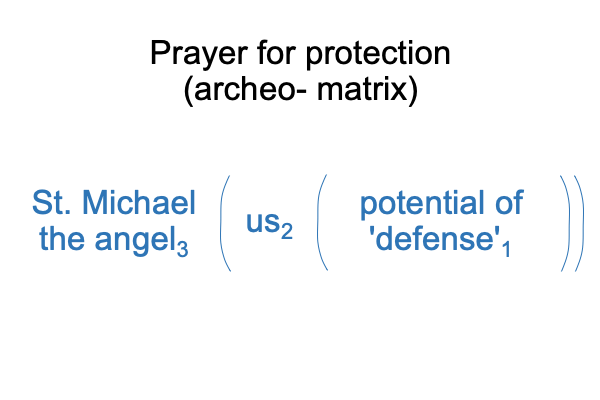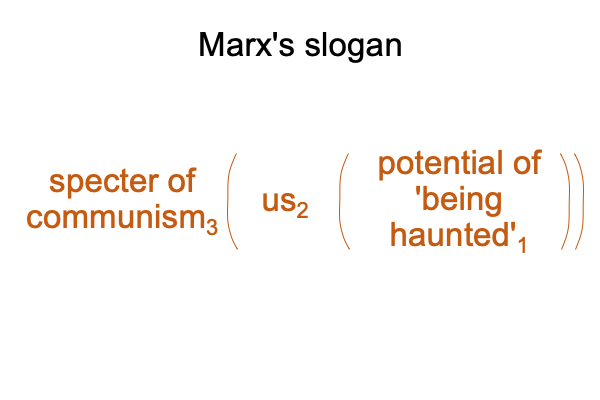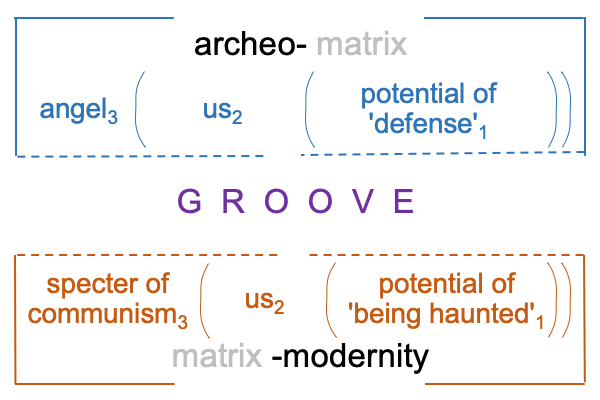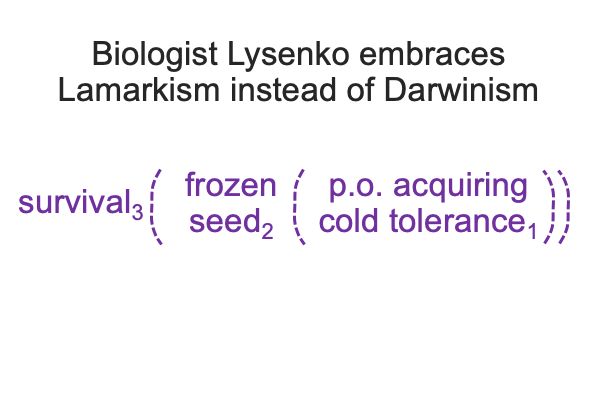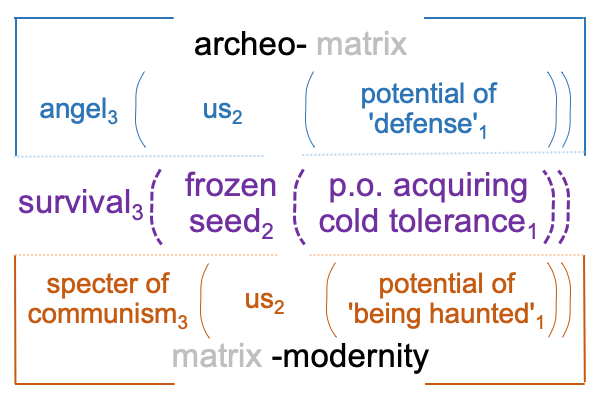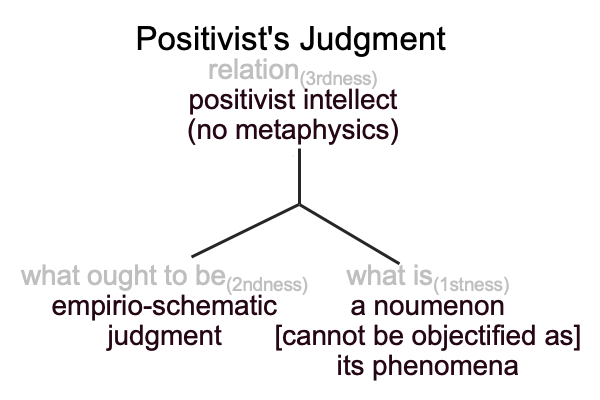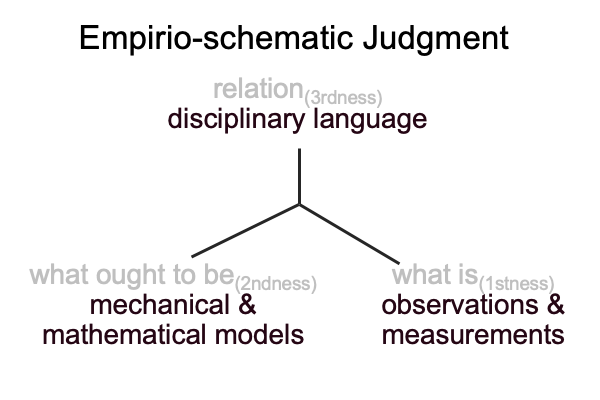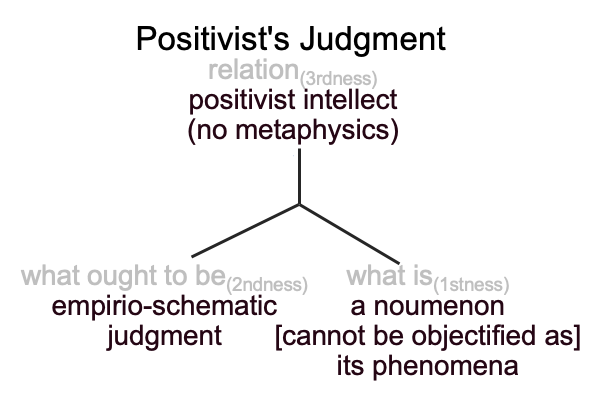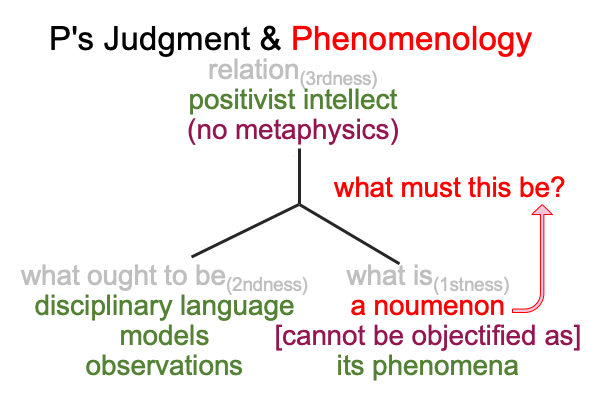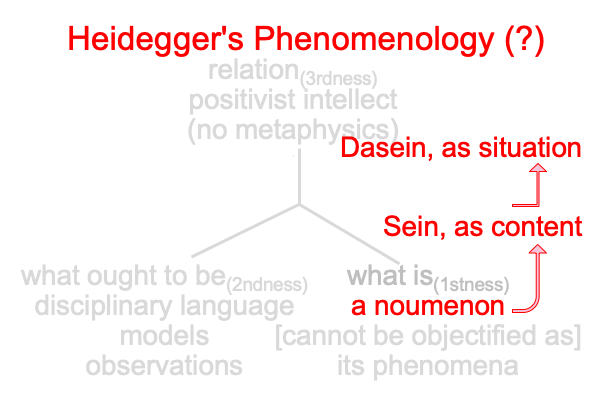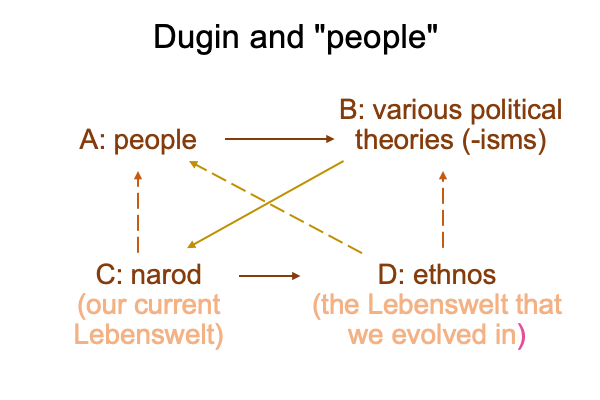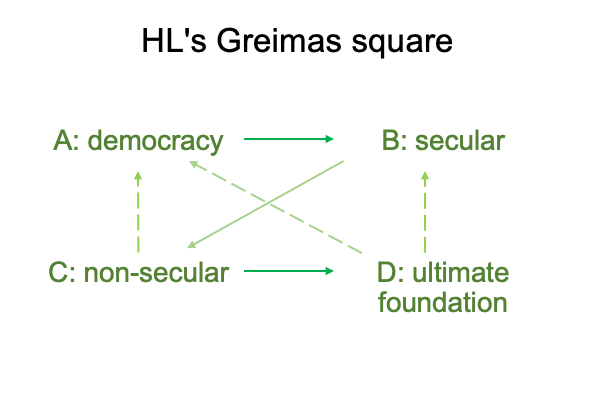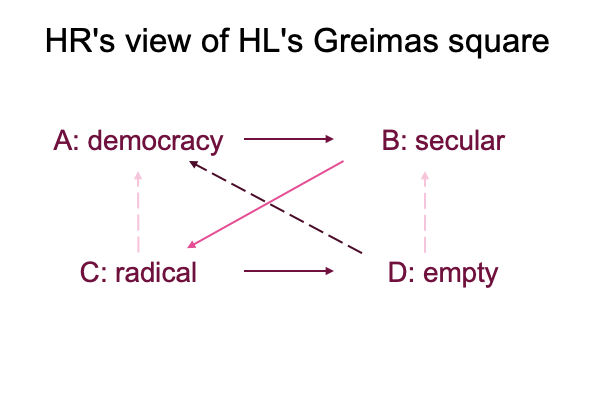Looking at Michael Millerman’s Chapter (2022) “…On Strauss and Dugin” (Part 5 of 10)
0080 How about an example?
Consider a claim by Spengler, mentioned earlier. According to Strauss, Spengler states that the task of philosophy is to understand various cultures as expressions of the soul.
0081 Does this go into a nested form?
The actuality is various cultures2. The normal context is expressions of the soul3. The potential is understanding1.
Here is Spengler’s suggestion. It fits well into the archeomodern groove.
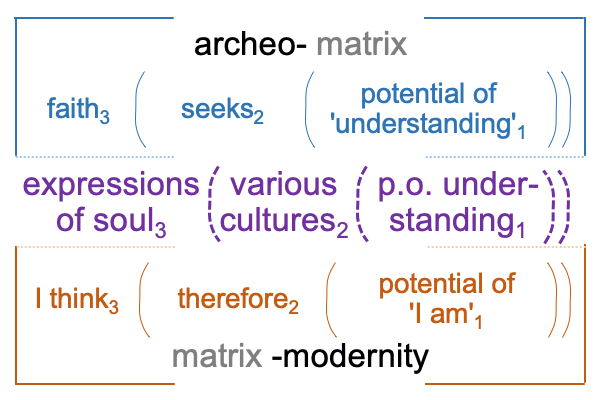
0082 Now, let me try a variant. Historicism explains expressions of the soul (including philosophy) in terms of the cultural dynamics of the time.
The normal context is explains3. The actuality is expressions of the soul2. The potential comes from cultural dynamcs1.
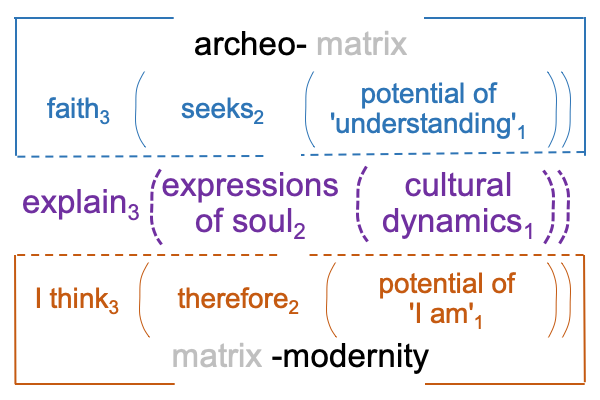
0083 Does this bind very well?
I don’t think so.
Spengler’s idea binds well to archeomodernity.
Historicism does not.
0084 Archeomodernity is a trap, in the same way that a receptor is a trap for its substrate. Spengler’s claim is a suitable substrate. Historicism is not, unless the substrate alters the binding site through irreversible degradation.
What do I mean by that?
0085 Compare the way that each nested form binds in the realm of thirdness.
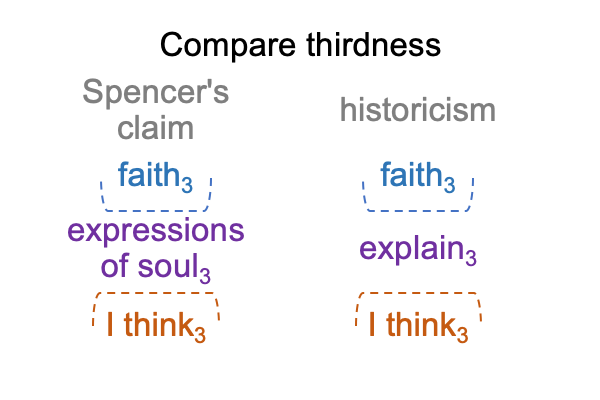
Surely, Spencer’s claim intuitively binds to both sides of the groove, while historicism does not. Expressions of the soul3appeal to faith3 as well as to human thought3. Determining an explanation3 does not. Faith3 does not want empirio-schematic “explanations”3. Plus, scientific explanations terminate inquiry3, and therefore, human thought3.
0086 What do modern experts desire?
They desire to terminate inquiry with scientific models (explanations) that account for observations and measurements of phenomena.
0087 What about a comparison in the realm of firstness?
Take a look
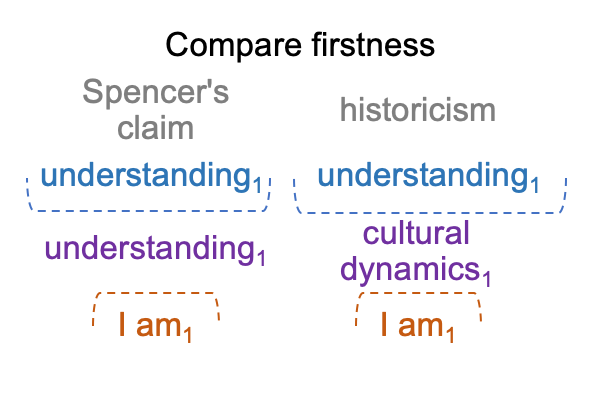
0037 Understanding1 from Spengler’s claim, does not match understanding1 from Anselm’s slogan. However, since Spengler’s understanding1 is philosophical, rather than scientific, its potential coheres with Anselm’s use of the term.
At the same time, understanding1 from Spengler’s claim may not satisfy Descartes’ desire for individual realness1. But, it1does not terminate the presence, inherent to I am1.
0088 In contrast, the naming of cultural dynamics1 makes understanding1 irrelevant. Cultural dynamics is a term belonging to a specialized disciplinary language. The term gives the impression that viable mathematical and mechanical models account for observations and measurements of cultural phenomena.
Of course, mathematical and mechanical models focus on actuality2 and ignore normal context3 and potential1. Anselm’s understanding1 requires all three categories. So, cultural dynamics1 is not compatible with Anselm’s understanding1.
Even worse, the impression that models of cultural dynamics1 increases understanding1 (in Anslem’s sense of the term) degrades the archeo- side of the groove.
0089 Similarly, if the term, “cultural dynamics”, belongs to a specialized disciplinary language, not known to average blokes, then the potential of I am1 extols the expert, in contrast to the plebian. Theoretically, the expert is Cartesian, with an unlimited will (I am1) to know (I think3) In short, expertise3 emerges from the potential of the expert’s will1.
But, since normal contexts follow the logic of exclusion, most modern experts are satisfied to be the only person in the room with a model that no one else can argue with. So, it makes me wonder whether the potential of cultural dynamics1serves to disengage the purity of will implied by Descartes’ slogan, thereby degrading the -modern side of the groove. Experts do not have an unlimited will to know, because… well… they are satisfied with what they know.
0090 The Western version of archeomodernity is a receptor. That is why moderns (and especially, so-called “postmoderns”) despise it. Indeed, the social sciences tend to degrade it. Social science explanations do not bind well to the groove. Consequently, the social sciences are inexplicably dissatisfying.

